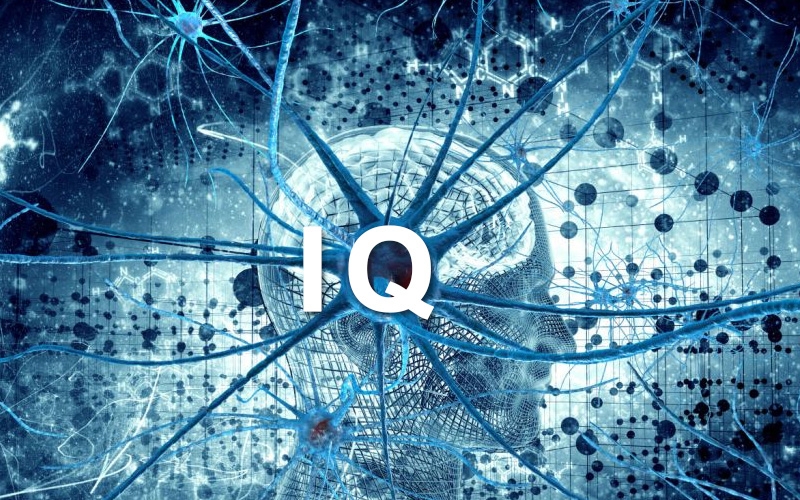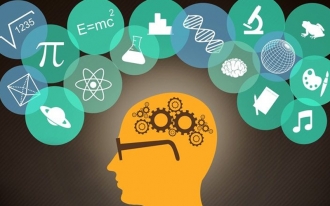- BRAINTRAIN |
- Blog |
- Brain Development |
- What Affects Human Intelligence (IQ)?

Bogdan Moroz 20.12.2019 2631 Comments
Since the development of psychology, many scientists have sought to identify general trends in individuals’ mental development and provide a common classification. This required an objective system to assess each person’s intellectual potential and compare it with others.
The first to introduce the concept of Intelligence Quotient (IQ) was William Lewis Stern in 1912, proposing to measure mental potential by comparing an individual’s “intellectual age” with their physical age. Thus, a young child and an educated adult could have the same IQ if equally developed for their age.
The next logical step was exploring how various factors influence intellectual abilities and whether they can be enhanced. Public interest in IQ has surged, and it’s now easy to take an online IQ test for instant results. Yet, the question remains: how effective are our deliberate efforts to boost mental development?
Ongoing research provides insights, which we’ll analyze in this article.
Innate Mental Abilities
Many scientists agree that genetic inheritance significantly impacts a child’s subsequent development and intellectual abilities. Since the 1990s, studies have separated and analyzed groups by age, hereditary factors, upbringing conditions, and other metrics. Can mental trainers help someone with poor genetics and no predisposition for effective intellectual activity?
Direct Influence of Heredity
Studies examined IQ scores from children in both biological and adoptive families, including those with troubled biological parents. Tests over time showed heredity’s influence ranging from 40 to 80%—a significant factor, assuming the impact stemmed from genetics rather than psychological issues tied to feelings of inadequacy in family or society.
Some observations noted that many adopted children of law-breaking parents were more prone to crime. However, no objective method confirms this is purely genetic; it could also stem from social positioning issues, feelings of loss, resentment toward biological parents, or unwarranted guilt.
Identifying Specific Genes for Mental Development
Claims about heredity’s role spurred searches for specific genes or combinations indicating high intellectual potential. Yet, years of genetic research yielded no tangible results, and IQ cannot currently be predicted via genetic tests.
This may suggest genetics’ role is overstated, though many scientists still uphold the theory of inherited exceptional abilities.
Living Conditions and Upbringing
How much does a child’s “environment” affect IQ? Studies found a 10% influence from nutrition and living conditions in infancy. A breastfeeding mother consuming fish products gives her child a slight brain activity advantage over peers. However, by adulthood, this gap closes, and personal development efforts outweigh early socioeconomic conditions.
Racial Differences in Intellectual Potential
Theories of racial superiority or cultural influence have long intrigued humanity. Experiments divided subjects into ethnic groups to test these ideas.
Baseline Differences Between Ethnic Groups
For experiment purity, U.S. residents in similar social conditions were compared, averaging results by origin and age. Results showed some ethnic dependence, with differences in average scores. African Americans scored lowest at 85, considered low for Europeans, while Jewish communities averaged 113, above average.
However, immigrant academic performance shows intelligence depends more on individual ambition than origin, as they match local students’ IQs within a year.
Living Conditions in a Country
Another confirmed hypothesis was the impact of a country’s living conditions. Factors like economic prosperity (measured by GDP), governance, dominant ideologies, and atheism directly influenced citizens’ intellectual potential. Immigration to different conditions significantly altered IQ, supporting the environment’s role in mental formation and highlighting personal drive (as immigration reflects readiness for bold actions toward goals).
Society’s Influence on IQ
A key question is how social status and activity affect intellectual potential, and whether social groups correlate with mental metrics.
Link Between Intelligence and Academic Performance
A connection between high academic performance and IQ was noted early in test development. But is this link one-way, or do both factors influence each other? Does strong academic effort guarantee a high IQ by graduation?
Numerous studies showed a student’s IQ directly affects their ability to quickly grasp material, playing a key role in academic success. However, the reverse isn’t true—diligent students who memorize material don’t boost their intellectual potential this way.
Is High IQ Needed for a Good Job?
IQ’s impact on employment is a pressing societal question, especially as interest in this metric grows. This also encompasses potential wealth and IQ’s effect on income.
Experiments showed significant IQ influence in analytical professions and for mid-to-high-level managers. High mental activity optimizes management and data systematization. As a result, many companies now include IQ tests in hiring processes. High-IQ individuals in these roles showed greater efficiency, directly impacting earnings.
Physical-skill-based professions, requiring strength, agility, or specific abilities, showed no IQ dependence, proving the test’s negligible role in such hiring decisions or financial outcomes.
Does IQ Affect Crime?
A hypothesis suggested those with lower IQs are more likely to commit crimes, struggling with self-realization and not fully grasping their actions’ consequences.
Studies found IQ’s influence on crime was only 4%, within the margin of error due to incomplete data on other factors. Criminals span all IQ levels, with no innate predisposition tied to intelligence.
Honesty and integrity also vary across social and intellectual groups.




